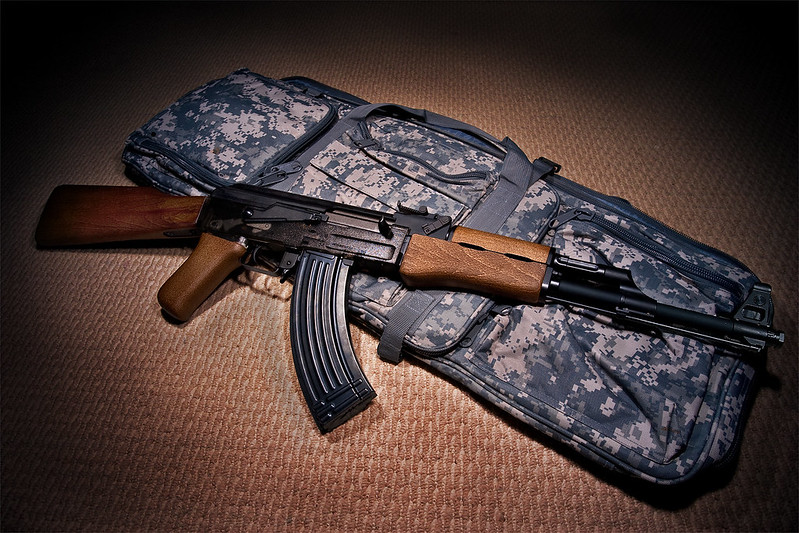One plaintiff named in the class action claims that Facebook failed to remove defamatory posts about his father, who was soon after murdered in a targeted killing.
A class action lawsuit filed in Kenya has accused Facebook of abetting political violence by failing to moderate and remove sensitive content.
According to NBC News, the lawsuit seeks an estimated $2 billion in restitution.
The plaintiffs have also asked that the court compel Meta, Facebook’s parent company and owner, to implement policy-related changes.
NBC News reports that the complaint, filed was filed in Nairobi, the Kenyan metropolis where Facebook recently opened a major content moderation hub.
The class action suggests that Facebook profited from the viral potential of the and conflict in neighboring Ethiopia, which has been facing civil unrest and insurgency for the past several years.
The lawsuit broadly asserts that Facebook failed to monitor and moderate content related to the Tigray War in Ethiopia, allowing hate-filled posts to circulate on social media.

Some of these posts, attorneys say, fueled real-world violence against ethnic minorities in Ethiopia and elsewhere.
Among the plaintiffs named in the lawsuit is Abrham Meareg, an Ethiopian professor who has since sought political asylum in the United States.
Meareg says that his father was killed by militants last year, a direct result of incitement that was spread, in part, by Facebook posts.
Meareg’s father, writes NBC News, was a well-known chemistry professor and member of the Tigrayan ethnic group. He was murdered on 3 November, 2021, when a group of men on motorcycles followed him from his university and shot him to death outside of his home.
The family home was later taken over and occupied by militants, forcing Meareg’s mother to flee to the Ethiopian capital city of Addis Ababa.
“My father didn’t get any chance to convince people that he was innocent,” Meareg told NBC News from his Minneapolis home. “He didn’t get the choice to clarify the hate speech and disinformation. They just shot him and killed him in a brutal way.”
A spokesperson for Meta has since defended the company, saying that it has well-documented procedures to prevent the spread of misinformation and hate speech.
“We have strict rules that outline what is and isn’t allowed on Facebook and Instagram,” Meta spokesperson Mike DelMoro said in a statement released on Tuesday. “Feedback from local civil society organizations and international institutions guides our safety and integrity work in Ethiopia. We employ staff with local knowledge and expertise and continue to develop our capabilities to catch violating content in the most widely spoken languages in the country, including Amharic, Oromo, Somali and Tigrinya.”
NBC News notes that this is far from the first time that Facebook has been accused of abetting political violence: recently, Rohingya activists in Myanmar have alleged that Meta failed to take action against Facebook users calling for the mass slaughter of members of the minority Muslim group.
Meareg says that, although he repeatedly petitioned Facebook for the removal of posts targeting his own father, the platform took no action and allowed the content to remain on the website.
The posts, Meareg alleges, contained false information about his father, including claims that he had participated in massacres, stolen money, and spearheaded military incursions into contested territories.
“Facebook is a big gun, social media platform in Ethiopia,” Meareg said. “Facebook knows the platform is used for genocide, ethnic cleansing, extrajudicial killings. And intentionally, due to their deliberate dismissal of the consequences and harm, they just prefer to focus on their profit-making.”
Cori Crider, director of the United Kingdom-based nonprofit organization Foxglove Legal—the same organization litigating the case—told NBC News that Facebook has broadly failed to moderate content in sub-Saharan Africa to the same extent as it does in the United States and Europe.
“However bad you and I think content moderation is in the U.S., it is an order of magnitude worse anywhere outside of the U.S. — and particularly bad in places facing crisis or conflict,” Crider said. “When people make posts calling for genocide or targeting people in certain areas, posts will go viral and it will not come down. What happened to Abrham’s father is horrific and also systemic.”
Sources
Facebook hit with $2 billion lawsuit connected to political violence in Africa
Meta accused in lawsuit of allowing posts that inflamed Ethiopia conflict
Meta faces $1.6bn lawsuit over Facebook posts inciting violence in Tigray war


Join the conversation!